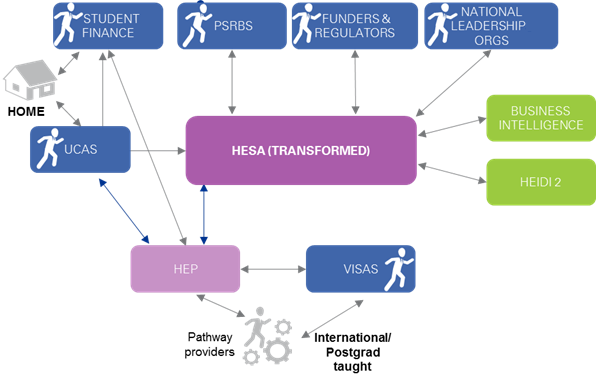The New Landscape project seeks to create a design for the information landscape, something that has never previously existed in higher education. Rosie Niven rounds up the main points set out in the publication of a report setting out the roadmap for data in higher education.
Data is increasingly important to universities and recognition of this prompted moves to create the first road map for data governance and collection in the higher education sector.
The report, published last week by the Higher Education Data and Information Improvement Programme (HEDIIP), outlined four key elements:
- The need for collective governance and oversight of the information landscape, underpinned by common data principles.
- The development of a standard HE data set
- Rationalisation of data collections through a transformed HESA collection process
- Improved data capability
These measures will help to establish a joined up approach to managing data requirements across the sector, minimise the scope for duplicate data requests to emerge and introduce a set of common data definitions that can be used across the landscape to make reporting more efficient and make published information more comparable.
The report says that over time the project could also enable enhanced data analytics and intelligence and increase the quality and efficiency of data processes resulting in better information and lower risk.
Andy Youell, the director of HEDIIP told Efficiency Exchange said that much of the thinking about efficiency to date has looked within organisations. “What HEDIIP is doing is addressing efficiency at a system level by focusing on efficiency between organisations.”
HEDIIP will be taking forward the actions that are set out in New Landscape over the next 12 months in parallel with other projects, including a data capability toolkit.
Other organisations are also working on data and information projects, including creating value from data by Universities UK and a project led by Jisc and HESA to replace HEIDI with a new business intelligence service. Youell says that HEDIIP’s work is complementary to these programmes.
“There are a lot of people active in driving more value from data,” he said. “We are pitching our data capability work around the foundational aspects of management and governance of data. If you don’t have high quality foundations in data, you won’t get the best results from your value-add activities.”








